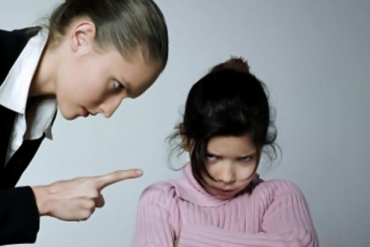In many cases, teachers are not able to control things that happen beyond the classroom. As an example, we children could have many different bad behaviours, including watching TV often and playing video games until 1AM. Teachers are not able to control these things and when children come to classroom looking drowsy and unfocused, teachers just can’t ask them to take a nap. However, when pupil misbehaves, it could still be the teacher’s fault. Many bad behaviours are actually attributed to specific triggers, although they may seem insignificant at first. This situation may escalate dramatically, causing unwanted reactions.
In reality, some teachers are really unable to react well to aggressive body language displayed by difficult students. They may respond with unfair punishments, sarcasms, shouting and others. This will result in open defiance and resentment, causing bad behaviours to emerge more often. In this case, teachers should know that minor problems can escalate and if left unchecked, things may get out of hand. Difficult students may not be able to venture back to the classroom properly, if other students won’t communicate properly and teachers tend to behave with some degree of hostility.
In this case, we should try to properly approach any challenging children. Teachers should be able to de-escalate and defuse the problem, before it gets out of hand. In this case, we should make sure that things are actually under our control. In this case, teachers won’t be able to change children’s inappropriate home situations, but teachers are able to control things that happen inside classroom. It is important to communicate and interact with difficult students, before, during and after class. Teachers will find that difficult students communicate differently compared to normal students.
In this case, both teachers and students should be able to establish mutual respect and in many cases, teachers will need to take a step back. It means that students need to change the way they feel and respond to these children. In this case, we will eventually able to change our entire attitude towards them. There have been studies directed towards “at risk” students to know things that make them unsuccessful at school. There are children who tend to scurry around the school corridors, even during class time. This could happen when teachers have thrown them out of class. In many cases, it is not a good idea to let these children out of class.
Results of these studies should be too surprising. Difficult students are not able to learn properly, because teachers, school staff and many other students have made it quite clear that they don’t like these difficult children. Teachers even openly say that they don’t want any difficult student in the class. When this happens, teachers have failed in fulfilling their educational functions. It is like doctors who give up when dealing with patients who have serious illnesses. Unsavory behaviours are bound to occur, so teachers should already be prepared and if it doesn’t right now, it will happen sooner or later.

